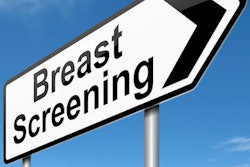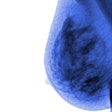The American College of Radiology (ACR) and the Society of Breast Imaging (SBI) said that they oppose new American College of Physicians (ACP) guidelines that recommend biennial breast cancer screening starting at age 50.
The new ACP guidance suggests delaying the starting age for breast screening from 40 to 50 and reducing the frequency of screening from once a year to every other year. These changes, which match the current U.S. Preventive Services Task Force (USPSTF) guidelines, may lead to 10,000 unnecessary breast cancer deaths in the U.S. each year, according to the ACR and SBI.
In addition, following these recommendations would require thousands of additional surgeries, mastectomies, and chemotherapy, while doing little to nothing to address overdiagnosis or the screening harms mentioned in the ACP guidelines, the organizations said.
In its new guidelines, the ACP claimed that there is a relatively low incidence of breast cancer in women younger than 60 years and that there is no significant difference in mortality rates for annual and biennial screening. Countering these statements, the ACR and SBI stated that the majority of in situ cancer, nearly half of all breast cancers, and the majority of life years lost to cancer occur in women under 60.
Furthermore, no randomized controlled trials have tested the ACP claim of no difference in mortality rates for biennial versus annual screening, the ACR and SBI said. In fact, the models used by the USPSTF and the American Cancer Society actually show a major decline in deaths among women who receive annual screening compared with those who are screened biennially, according to the organizations.
The ACR and SBI also suggested that the ACP guidelines are likely to worsen racial disparities in breast cancer outcomes, especially for African American women.
What's more, the guidelines underestimate the benefits of mammography and greatly overstate the risk of harm, according to the organizations. They said that the thousands of lives saved each year by annual mammography screening beginning at age 40 are not outweighed by short-term anxiety from test results, the recall rate, and overstated overdiagnosis claims.
The organizations also said that shared decision-making with patients requires a more accurate accounting of the pros and cons of annual breast cancer screening, as well as a more nuanced approach to assessing individual risk factors than that proposed by the ACP.



















